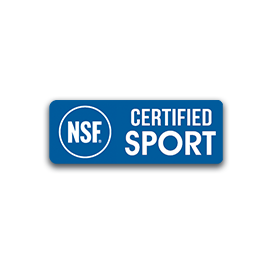The 6 Fundamentals of Athlete Fueling for Optimal Performance
The sports nutrition movement is accelerating so rapidly that Tiffany Byrd, Director of Sports Nutrition at the University of Oklahoma, considers herself a second-generation beneficiary of  pioneers like James Harris III, currently at the Philadelphia Eagles with prior stops at University of Nebraska and University of Oregon, and Amy Bragg at the University of Alabama.
pioneers like James Harris III, currently at the Philadelphia Eagles with prior stops at University of Nebraska and University of Oregon, and Amy Bragg at the University of Alabama.
Byrd, who won a national title as a gymnast at Alabama, transferred to Nebraska where she was on the receiving end of Harris’s cutting-edge sports nutrition program. “He had such an impact on my life – not only as an athlete,” she says. “Food was his tool, but he was about life – setting me up to make my impact on the world.”
When Byrd went back to Alabama to earn a master’s degree in sports nutrition, Harris, who had moved to the University of Oregon hired her as a summer intern. During this time, Alabama hired Bragg as its first Sports RD, and Byrd became her first intern when her summer stint ended at Oregon. After she attended the annual Collegiate and Professional Sports Dietitians Association (CPSDA) conference, she landed a job as Baylor University’s first full-time sports dietitian in 2012, then moved to launch the Oklahoma program in 2013.
[wpvideo f8U86t7C] (click to view)Hands-On Approach
“We opened the dining hall my first year,” she says. “If you are able to have a training table, you might as well use it as an education tool. It’s education to the athletes, the coaches, and even the administration. Day to day operations include providing a hands-on approach in working with athletes, with coaches, with administration, housing and food services, and even includes doing administrative tasks. It’s consistently being a presence and emphasizing to our athletes, coaches, and staff the importance of how to use food as fuel to gain a performance advantage.”
The learning curve involves top-tier athletes who may have eaten mostly fried chicken, biscuits and gravy, bacon, and pizza. Byrd emphasizes the importance of fueling for performance – using food as a tool to gain a benefit in performance by incorporating fruits and vegetables, lean proteins, complex carbohydrates, while maintaining adequate hydration.
We strive daily to encourage our athletes to become not only better athletes, but healthier people.
“Food is very personal,” she says. “Most of the time we adopt our food habits from our parents or whoever raised us. Getting someone to change some of these behaviors can be challenging. We strive daily to encourage our athletes to become not only better athletes, but healthier people. It sets them up for life. OU is a three-, four-, five-year stop for them in this journey of life. You don’t ever get away from food. We hope that upon leaving Oklahoma, they have a good understanding and relationship with food. In doing so, we equip them to impact their families and future generations for the better long after their playing days are over.”
B.O.O.M.E.R.
Already, OU’s program reaches beyond the athletes. Other students and staff members in the athletics department can utilize Wagner Dining and benefit from the educational experiences. Byrd incorporated an acronym to help remind athletes of the fundamentals of nutrition while at OU: B.O.O.M.E.R.
- Begin with Breakfast – emphasizes the most important meal of the day
- Own your Protein – encourages adequate protein intake for muscle growth and development
- Optimize Hydration – Hydration is vital, especially in the hot Oklahoma climate. “That’s where The Right Stuff comes into play,” she says. “It really helps us with hydration and it has been a huge asset for us here at OU.”
- Must have fruits and vegetables – strive for all five colors daily for nutrients, vitamins, and minerals
- Eat often – ideally every two or three hours
- Rest and recover – “Nutrition plays a huge role,” Byrd says. “There’s a 30-minute window for recovering with carbohydrates and proteins to help replenish what was lost, to repair muscles broken down during practice and training.”
Her position has given Byrd a platform for providing nutrition education across the campus and beyond, including speaking engagements across the state, as well as an appreciated role with the athletes. She even has her own student interns, a reminder of her early start in the expanding profession.
“I pride myself on being the athlete’s OU mom,” she says. “Because of the support and encouragement provided to me by our Athletics Director Joe Castiglione and Head Football Coach (Coach Stoops), I’ve had opportunities to speak at different conventions in the state to help with the health in Oklahoma. It’s remarkable that this position has provided a platform that goes beyond our athletes and the University of Oklahoma but extends throughout the community, the state, into our OU alumni, and hopefully onto a national level.”






